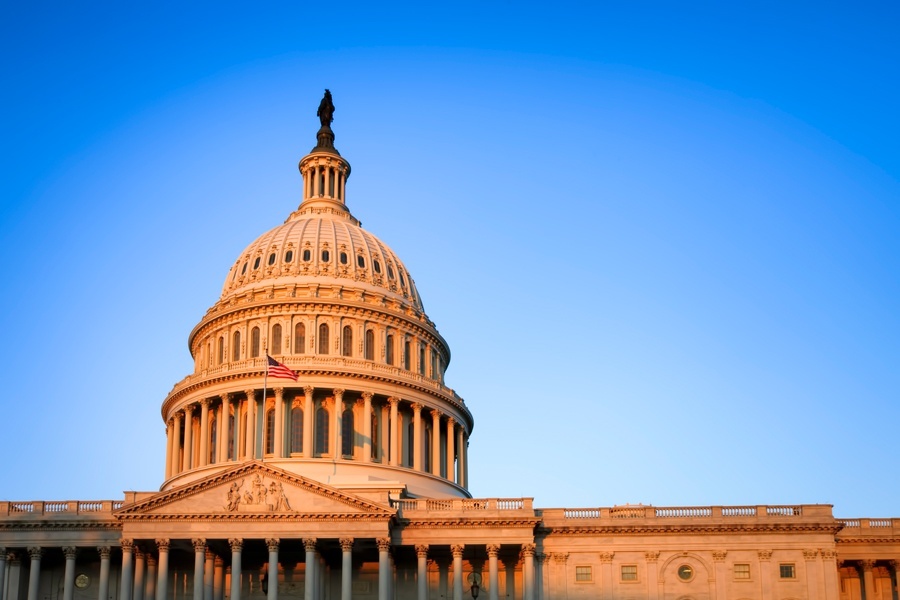

The largest caucus of House Republicans called for an increase in the Social Security retirement age Wednesday, setting up a clash with President Joe Biden over spending on popular entitlement programs.
The Republican Study Committee, which comprises about 80% of House Republicans, called for the Social Security eligibility age to be tied to life expectancy in its fiscal 2025 budget proposal. It also suggests reducing benefits for top earners who aren’t near retirement, including a phase-out of auxiliary benefits for the highest earners.
The proposal sets the stage for an election-year fight with Biden, who accused Republicans of going after popular entitlement programs during his State of the Union address.
“If anyone here tries to cut Social Security, Medicare, or raise the retirement age, I will stop you,” Biden said in his March 7 address to Congress.
Rep. Kevin Hern, R-Okla., the caucus’s chairman, said the president’s opposition to Social Security policy changes would lead to automatic benefit cuts when the program’s trust fund is set for insolvency in 2033. A phased-in retirement age change was a standard feature of past negotiations, he said.
“Anytime there’s been any reforms in history – President Clinton, President Reagan – had a slow migration of age changes for people that are 18, 19 years old,” Hern told reporters Wednesday.
Former President Donald Trump, the likely GOP presidential nominee this year, has offered an inconsistent position on entitlements. He said in a March 11 CNBC interview that “there’s a lot you can do in terms of entitlements, in terms of cutting.” He then told Breitbart he “will never do anything that will jeopardize or hurt Social Security or Medicare.”
The caucus’s budget proposal is more aggressive than the recent proposal by House Budget Committee Chairman Jodey Arrington, R-Texas, who advanced a budget resolution earlier this month that called for a bipartisan commission to negotiate Social Security and Medicare solvency but didn’t make specific policy recommendations. The Republican Study Committee, meanwhile, called for policy changes that would reduce spending on Social Security by $1.5 trillion and Medicare by $1.2 trillion over the next decade.
Republicans have said their proposals aren’t truly cuts and wouldn’t affect those at or near retirement. But Biden and congressional Democrats such as Rep. Brendan Boyle, D-Pa., ranking member of the Budget Committee, have said they won’t support an increase in the age of eligibility.
The caucus’s proposal leaves some details out. It calls “modest changes to the primary insurance amount” for those who aren’t near retirement and “earn more than the wealthiest” benefit level. It also proposes “modest adjustments to the retirement age for future retirees to account for increases in life expectancy.” And it would “limit and phase out auxiliary benefits for high income earners.”
The proposal projects to balance the federal budget by 2031, outlining $16.6 trillion in spending cuts over a decade.
The proposal calls for Medicare spending reductions by implementing a “premium support model” in which private Medicare Advantage plans would compete with the federal Medicare plan. It proposes moving graduate medical education payments, which go to teaching hospitals for their residency programs, into a trust fund separate from Medicare.
Biden’s fiscal 2025 budget proposal, released March 11, called for an increase in the tax rate to support Medicare on those earning more than $400,000 a year, from 3.8% to 5%. It also broadly called for top earners to pay more to support Social Security, but didn’t make specific proposals. White House Office of Management and Budget Director Shalanda Young told reporters the Biden administration doesn’t like the current structure of the payroll tax — which only applies to the first $168,600 of an individual’s income.
The document notes that Biden previously supported increasing the retirement age from 65 to 67 after bipartisan negotiations in 1983.
One of the trust funds that supports Social Security is projected for insolvency in 2033, the program’s board of trustees said in their most recent estimate in March 2023.

Relationships are key to our business but advisors are often slow to engage in specific activities designed to foster them.

Whichever path you go down, act now while you're still in control.

Pro-bitcoin professionals, however, say the cryptocurrency has ushered in change.

“LPL has evolved significantly over the last decade and still wants to scale up,” says one industry executive.

Survey findings from the Nationwide Retirement Institute offers pearls of planning wisdom from 60- to 65-year-olds, as well as insights into concerns.
Streamline your outreach with Aidentified's AI-driven solutions
This season’s market volatility: Positioning for rate relief, income growth and the AI rebound
